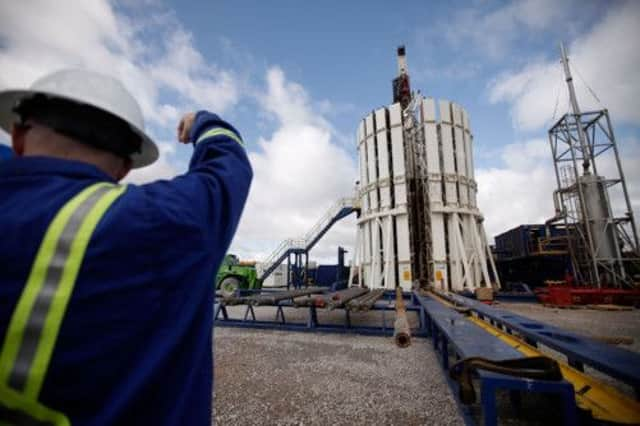Fracking is a dirty business


Or is it the fact that key figures in the industry have a seat in the heart of the coalition government? Or is it just too hard for us as a society to wean ourselves off our fossil fuel addiction? Whatever the reasons, the UK is poised at the start of a dangerous rush into unconventional gas.
Drilling was expected to start in Sussex yesterday. Cuadrilla is planning exploratory fracking in Lancashire and, in Falkirk, Dart Energy have applied for the first of what could be hundreds of unconventional gas wells across the central belt. The investors in these firms can expect to reap massive profits, but it’s hard to see who else will gain.
Advertisement
Hide AdAdvertisement
Hide AdPromises of cheap gas don’t stack up. Unconventional gas is only profitable if the price of energy remains high so rather than bring down the price, the converse is true: if energy prices drop, unconventional gas is no longer viable. Who then pays to clean up the mess?
The industry has undertaken a campaign of greenwashing, painting unconventional gas as a clean “alternative to fossil fuels”.
However, recent papers released by the Scottish Environment Protection Agency and the Department of Energy & Climate Change show that Dart Energy plans to “vent” tonnes of methane into the air every day, and due to holes in the legislation no one seems to have responsibility to ensure that the industry sticks to even these environmentally damaging limits. When these emissions are taken into account, unconventional gas is on a par with the dirtiest of dirty fossil fuels: coal. The damage doesn’t stop there. Communities across America and Dart’s home territory of Australia have suffered environmental devastation caused by unconventional gas developments.
Due to massive local opposition in Falkirk, Dart has been forced to take its planning application directly to the Scottish Government.
Now is the time for the Scottish Government to take a lead on this issue, reject this application and build safeguards into the new planning framework to ensure that if it’s not banned, then at least no gas development is allowed within two kilometres of people’s homes.
• Ed Pybus is an anti-fracking campaigner